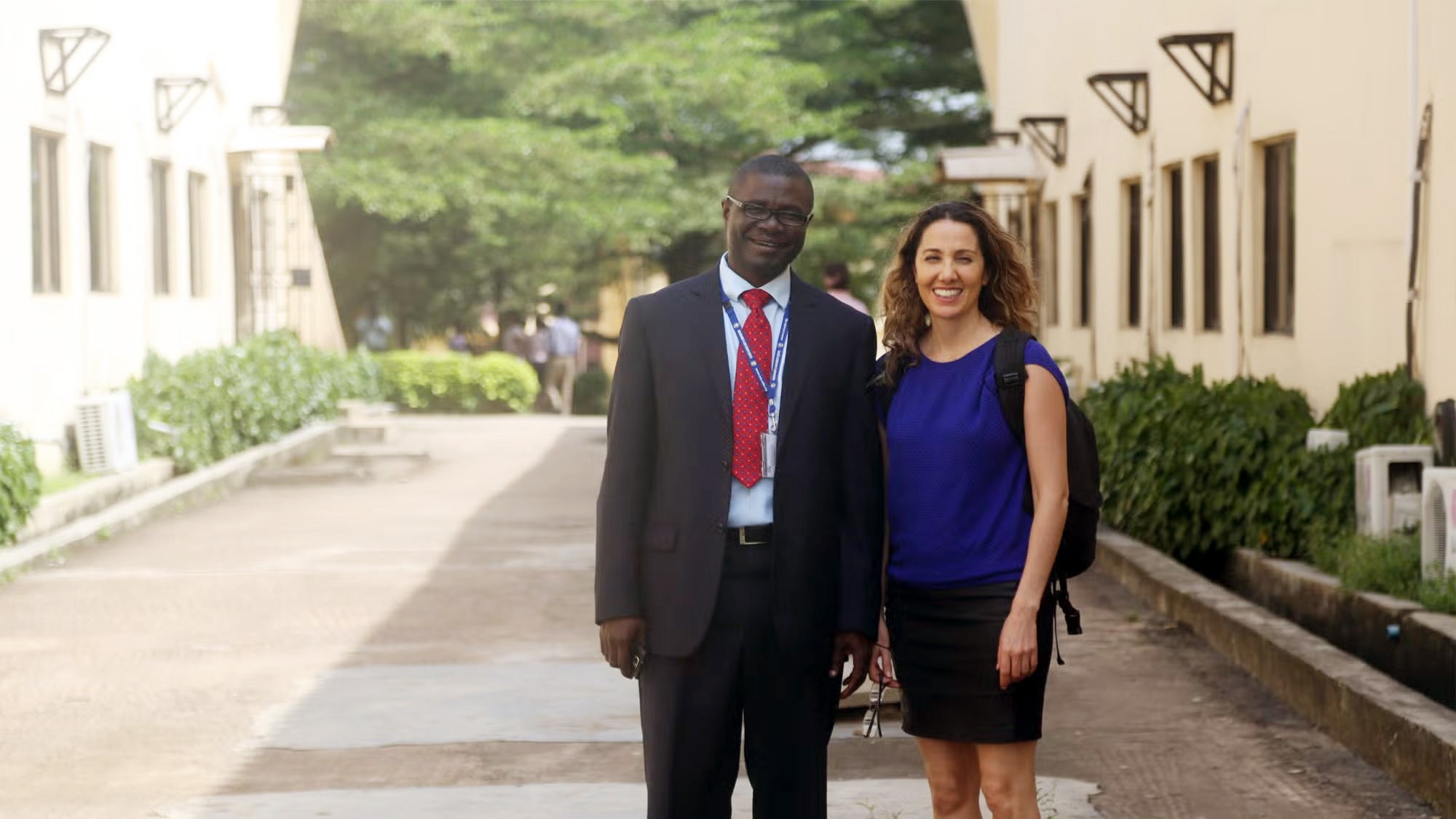Op-ed: Fighting an mpox outbreak, Sierra Leone ‘shouldn’t have to stand alone’

Although Sierra Leone is working hard to contain a dangerous mpox outbreak, more support from the U.S. government and other international sources is needed in order to respond effectively, according to experts at Harvard T.H. Chan School of Public Health.
In a June 11 Time op-ed, Pardis Sabeti, professor of immunology and infectious diseases, and Christian Happi, adjunct professor of immunology and infectious diseases, wrote that a highly transmissible variant of the mpox virus emerged in Sierra Leone in November and is spreading quickly—disease cases are doubling every two weeks, and over 11,000 people in the country may be infected. Sabeti and Happi noted that the outbreak extends beyond Sierra Leone, with several patients identified in the U.S. and in Europe.
The authors wrote that public health officials at Sierra Leone’s National Public Health Agency have implemented a rapid response to the outbreak including testing and contract tracing for mpox cases, genetically sequencing the virus, and tracking the outbreak in real time. Officials are working with international collaborators such Sabeti and Happi, who co-lead Sentinel—an initiative aimed at detecting and characterizing outbreaks to stop diseases before they spread.
“Today, local teams are doing so much right—with nearly everything stacked against them. The warning signs are flashing. But their resources are running out,” wrote Sabeti and Happi. They wrote that since the U.S. government canceled funding to Sierra Leone earlier this year, support from organizations such as the World Health Organization and philanthropic and industry partners has helped but is not enough.
“Sierra Leone is showing the world what preparedness looks like. But it shouldn’t have to stand alone,” they wrote. “We can wait—again—until the virus spreads further. Or we can act now, support the leaders in Sierra Leone already responding, and get them the resources they need—like diagnostics, clinical support, vaccines, sequencing reagents, and frontline outbreak response—to save lives and cut this outbreak short.”
Read the Time op-ed: Sierra Leone Is Battling an Mpox Outbreak. What Happens Next Affects Us All

